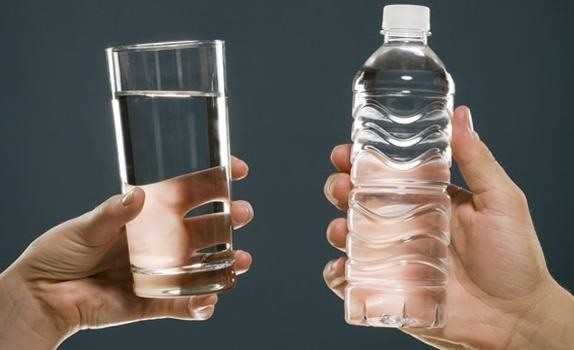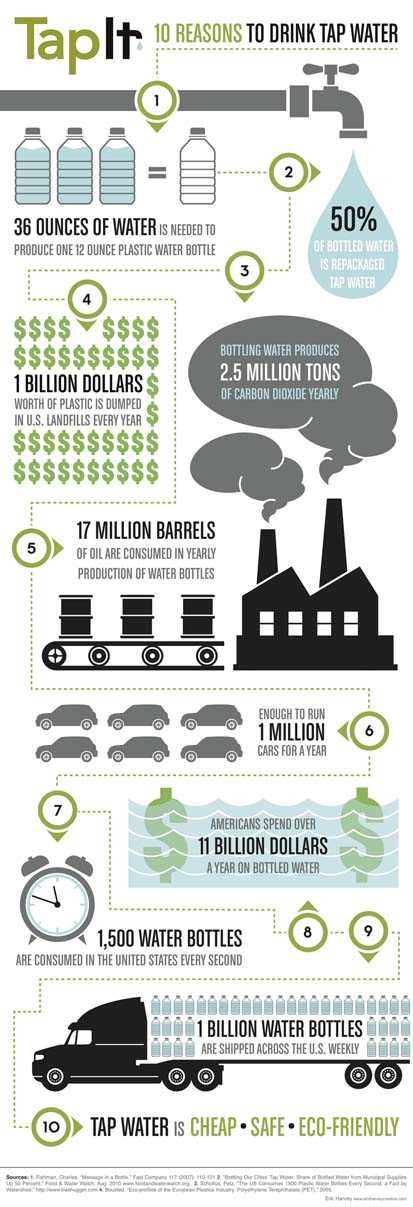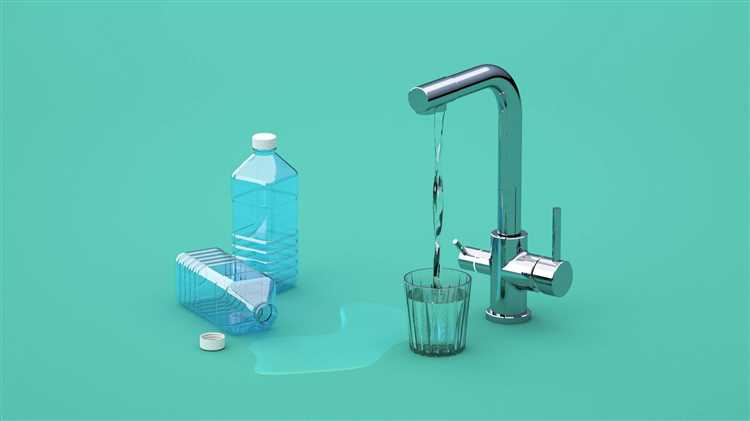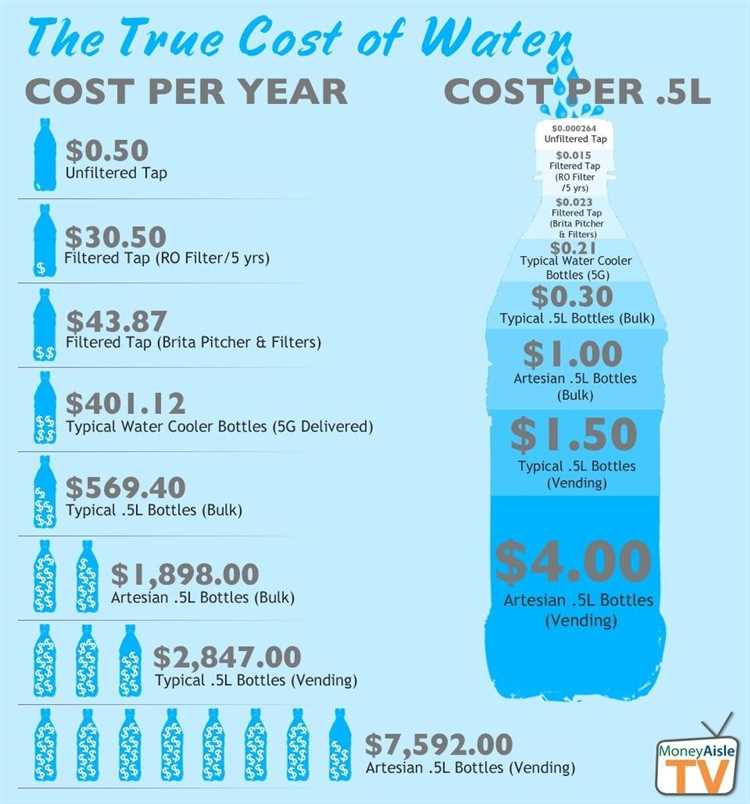
Tap water or bottled water, which one should you choose? It’s a common question that many people ask when it comes to their daily hydration needs. While both types of water have their own advantages and disadvantages, it’s important to understand the health implications of your choice.
Tap water is generally considered safe for consumption in most developed countries. It is treated with chemicals to remove impurities and is subject to regular testing to ensure its quality. In addition, tap water is often fortified with essential minerals, such as fluoride, which can be beneficial for dental health.
Bottled water, on the other hand, is often perceived as a healthier choice due to its perceived purity and convenience. However, not all bottled water is created equal. Some brands simply bottle tap water, while others go through additional filtration processes. It’s important to read the labels and choose a brand that meets your standards.
In conclusion, both tap water and bottled water can be safe and healthy choices for hydration. The key is to choose a reliable source of tap water or a reputable brand of bottled water. Whichever option you choose, remember to stay hydrated and make water a part of your daily routine.
- The Differences in Quality
- Treatment Process
- Regulations and Testing
- Environmental Impact: Manufacturing and Waste
- Potential Health Risks in Bottled Water
- The Benefits of Tap Water
- 1. Regulated Standards
- 2. Cost-effective
- 3. Environmental Benefits
- Accessibility and Cost
- Environmental Impact
- Quality and Safety
- Regulations and Safety Standards
- Q&A:
- Is tap water safe to drink?
- What are the advantages of tap water over bottled water?
- Is bottled water healthier than tap water?
- Does bottled water taste better than tap water?
- What are the environmental impacts of bottled water?
The Differences in Quality
When it comes to the quality of tap water versus bottled water, there are several noteworthy differences to consider.
Treatment Process
Tap water goes through an extensive treatment process before it reaches your faucet. It is treated in water treatment plants where various contaminants are removed, such as bacteria, viruses, and chemicals. This ensures that tap water is safe to drink.
On the other hand, bottled water is typically sourced from springs, wells, or public water sources. While bottled water may also go through a treatment process, it is not subjected to the same level of strict regulations as tap water. This means that the quality of bottled water can vary significantly depending on the brand and source.
Regulations and Testing
Tap water is heavily regulated by government authorities and must meet specific quality standards. Water treatment plants are required to regularly test the water for contaminants and ensure compliance with these standards.
As for bottled water, it is regulated by the Food and Drug Administration (FDA) in the United States. However, the regulations for bottled water are generally less strict compared to those for tap water. Additionally, the testing frequency and standards may vary among different bottled water brands.
This difference in regulations and testing means that tap water is often subjected to more rigorous and frequent quality checks compared to bottled water.
Cost
Tap water is significantly cheaper than bottled water. In fact, tap water costs almost nothing compared to the price of bottled water. You can access tap water directly from your faucet without any additional costs, making it a more economical choice.
Bottled water, on the other hand, can be quite expensive, especially if you purchase it regularly. The costs of manufacturing, bottling, and transportation contribute to the overall higher price of bottled water.
In conclusion, tap water undergoes a more comprehensive treatment process, is subject to stricter regulations, and is significantly cheaper compared to bottled water. While the quality of bottled water can vary, tap water is generally a healthier and more cost-effective choice.
“`html
Environmental Impact: Manufacturing and Waste
Manufacturing bottled water involves a significant amount of energy and resources. The production process includes extracting, purifying, and packaging the water, which requires large amounts of water and energy. Additionally, the production of plastic bottles contributes to air pollution and greenhouse gas emissions.
The plastic bottles used to package bottled water are typically made from polyethylene terephthalate (PET), a non-biodegradable material. This means that when these bottles end up in landfills or oceans, they can take hundreds of years to decompose, leading to long-lasting pollution.
In contrast, tap water requires significantly less energy and resources to produce. Water treatment plants already exist to provide clean drinking water to communities, reducing the need for additional manufacturing processes. Additionally, tap water is delivered directly to homes through a network of pipes, eliminating the need for packaging and transportation.
Choosing tap water over bottled water can help reduce the amount of waste generated. The plastic bottles used for bottled water contribute to the growing problem of plastic pollution in our oceans and landfills. By using reusable water bottles and choosing tap water, individuals can make a positive impact on the environment by reducing plastic waste.
Furthermore, the transportation of bottled water from manufacturing plants to retail locations consumes additional energy and generates greenhouse gas emissions. The logistics involved in distributing bottled water across the country and around the world contribute to carbon emissions and further strain our already overburdened transportation systems.
In conclusion, when considering the environmental impact, tap water is the healthier choice. By reducing the demand for bottled water, we can minimize the resources and energy required for production, reduce waste, and decrease our carbon footprint.
Potential Health Risks in Bottled Water

While bottled water is often seen as a healthier alternative to tap water, there are potential health risks associated with its consumption. One of the main concerns is the presence of microplastics in plastic water bottles. These tiny particles can leach into the water and are then ingested by consumers. Some studies have found that microplastics can contain harmful chemicals that may have adverse effects on human health.
Another issue with bottled water is the potential for contamination. Despite rigorous quality control measures, there have been instances where bottled water has been found to contain harmful bacteria or chemicals. This can be particularly concerning for individuals with compromised immune systems or those who are pregnant, as they may be more susceptible to the negative effects of contamination.
The packaging of bottled water also poses potential health risks. Plastic bottles may contain chemicals such as BPA (bisphenol A), which can leach into the water over time. BPA has been linked to various health issues, including hormone disruption and an increased risk of certain cancers.
Furthermore, the production and transportation of bottled water have negative environmental impacts. The extraction of groundwater for bottling depletes natural resources, and the plastic bottles contribute to pollution and waste. These environmental factors also have indirect health consequences for both humans and ecosystems.
It’s important to note that tap water is typically regulated more strictly than bottled water, with regular testing and monitoring for contaminants. Additionally, most tap water is disinfected, eliminating harmful bacteria and pathogens.
In conclusion, while bottled water may seem convenient and a healthier option, it’s important to consider the potential health risks associated with its consumption. Tap water, when properly treated and regulated, is often the safer and more sustainable choice.
The Benefits of Tap Water
Tap water is a convenient and affordable source of hydration that comes straight from the faucet. It offers several benefits that make it a healthier choice compared to bottled water.
1. Regulated Standards

Tap water is subject to strict regulations and testing by government bodies to ensure its quality and safety. These standards are often more rigorous than those applied to bottled water. This means that tap water is closely monitored for contaminants and treated to remove any potential health risks.
2. Cost-effective
Choosing tap water over bottled water can save you money in the long run. Bottled water is often priced significantly higher than tap water, especially when you consider the cost of buying it in bulk. By using tap water, you can reduce your expenses and allocate your budget towards other essential needs.
3. Environmental Benefits
Opting for tap water helps reduce the environmental impact associated with the production, transportation, and disposal of plastic bottles. Plastic waste is a significant global problem, and by choosing tap water, you can contribute to reducing plastic pollution. It also eliminates the need for energy-intensive processes involved in producing and recycling plastic bottles.
In conclusion, tap water offers numerous benefits from its regulated standards to being a cost-effective and environmentally friendly choice. By choosing tap water, you are making a healthier choice for yourself and the planet.
Accessibility and Cost
When it comes to accessibility, tap water is the clear winner. It is readily available in almost every household, office, and public space. All you need to do is turn on the faucet, and you have instant access to clean and safe drinking water.
On the other hand, bottled water may not always be readily accessible. You need to remember to buy it from a store or bring it with you from home. This can be inconvenient, especially when you are on the go or in an area where bottled water is not easily available.
In terms of cost, tap water is significantly cheaper than bottled water. In fact, tap water is practically free when compared to the cost of purchasing bottled water. When you factor in the cost of packaging, transportation, and marketing, bottled water can be quite expensive. You can save a significant amount of money by simply opting for tap water.
Environmental Impact
Another important consideration is the environmental impact of bottled water. The production and disposal of plastic water bottles contribute to pollution and waste. Plastic bottles take hundreds of years to decompose, and many end up in landfills or polluting our oceans.
On the other hand, tap water has a much lower carbon footprint. It does not require packaging or transportation, which reduces the energy and resources needed. By choosing tap water, you can help reduce plastic waste and minimize your impact on the environment.
Quality and Safety

Both tap water and bottled water can be safe to drink, but there are regulations in place to ensure the quality of tap water. Municipal water supplies are regularly tested for contaminants and must meet strict health and safety standards.
However, the quality of bottled water is not always guaranteed. Some bottled water brands may not be subject to the same stringent regulations as tap water. Additionally, the plastic bottles themselves may contain potentially harmful chemicals that can leach into the water.
It is important to note that tap water is generally safe to drink in developed countries, but in some areas, it may be necessary to use a water filter or opt for bottled water due to contamination concerns.
Overall, tap water is the healthier and more accessible choice for most people. It is cost-effective, environmentally friendly, and subject to rigorous safety standards. By choosing tap water over bottled water, you can make a positive impact on your health and the environment.
Regulations and Safety Standards
Tap water and bottled water are both subject to strict regulations and safety standards to ensure their quality and safety.
In the United States, tap water is regulated by the Environmental Protection Agency (EPA) under the Safe Drinking Water Act. The EPA sets limits on contaminants in tap water and requires regular testing to ensure compliance. Water suppliers must provide annual reports to consumers detailing the quality of their tap water.
Bottled water, on the other hand, is regulated by the Food and Drug Administration (FDA) under the Federal Food, Drug, and Cosmetic Act. The FDA sets standards for bottled water labeling, safety, and production processes. Bottled water companies are required to meet these standards to ensure the safety of their products.
Both tap water and bottled water must meet certain standards for microbiological, chemical, and radiological contaminants. The standards for tap water are generally more rigorous, as public water systems are subject to more frequent testing and monitoring. Bottled water, however, is often tested less frequently due to the smaller scale of production.
It is important to note that while regulations are in place to ensure the safety of both tap water and bottled water, there can still be variations in quality. Factors such as the source of the water, treatment processes, and storage conditions can all impact the overall quality and taste of the water.
When choosing between tap water and bottled water, it is worth considering the regulations and safety standards that apply to each. Tap water is typically more closely monitored and regulated, while bottled water may offer the convenience of portability and potentially different taste profiles.
Ultimately, the choice between tap water and bottled water is a personal one, and it is important to consider individual preferences and needs. Whether you choose tap water or bottled water, staying hydrated is key to maintaining good health.
Q&A:
Is tap water safe to drink?
Yes, tap water is generally safe to drink in developed countries as it undergoes a rigorous filtration process to remove harmful bacteria and contaminants.
What are the advantages of tap water over bottled water?
One advantage of tap water is that it is significantly cheaper than bottled water. Additionally, it is often fortified with essential minerals such as fluoride, which can promote dental health.
Is bottled water healthier than tap water?
Bottled water is not necessarily healthier than tap water. In fact, some studies have found that bottled water may contain higher levels of contaminants. Tap water is also subject to strict regulations and testing, unlike bottled water.
Does bottled water taste better than tap water?
Taste can be subjective, but many people prefer the taste of bottled water over tap water as it is often filtered and purified. However, some people find that tap water has a fresher taste.
What are the environmental impacts of bottled water?
Bottled water has a significant environmental impact. It requires the use of plastic bottles, which contribute to pollution and waste. Additionally, the production and transportation of bottled water consume large amounts of energy and resources.